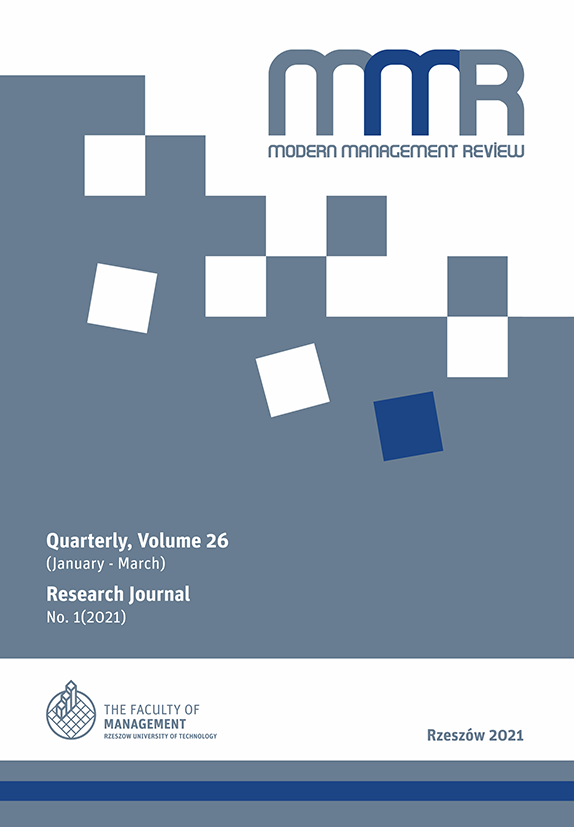Abstrakt
Institutions are made up of formal rules (constitutions, laws, and regulations) and informal
constraints (conventions and norms of behavior), and the way both are enforced. Wellspecified property rights that reward a productive and creative activity, a legal system that
enforces such laws at low cost, and internal codes of conduct that are complementary to such
formal rules are the essential underpinning to productive economy. In order to counteract the
illegal property redistribution, it is necessary to have a complex system of uniform norms and
interrelated standards of practice, such as legal framework, common policy in the field of law
enforcement and coherent policy of economic security. In the article the system of regulation
of property rights institutions in Ukraine has been analyzed and an effective option has
been suggested. They were based on the economic interest more than on administrative
enforcement.
Bibliografia
Antoniuk, N. A. (2019). Theoretical and Methodological Approaches to Anti-Crisis Management of the National Economy in the Context of Decentralization: a monograph. Lutsk: Eastern European National University named after Lesia Ukrainka.
Arefieva, O. V., Vovk, O. M., Posypaiko, Ye. A. (2020). Intensification of material and technical support formation of an enterprise in the conditions of neoindustrial modernization. “Economics bulletin of the National Mining University” No. 2 (70). DOI: 10.33271/ev/70.123.
Development of agricultural entrepreneurship: trends and prospects (2012). Proceedings of the Fourth International Scientific and Practical Conference of Young Scientists. Kyiv: NSC „Institute of Agrarian Economics”.
Hanushchak-Efimenko L. M., Shcherbak V. G. (2016). Innovative entrepreneurship development based on cluster organization. “Actual problems of economics” No. 11(185).
Hodgson, G. M. (1989). Economics and Institutions: A Manifesto for a Modern Institutional Economics. Philadelphia: University of Pennsylvania Press.
Lisovyi A. V. (2018). Tax regulation of development of rural territories of Ukraine: a monograph. Melnyk Publishing House.
Lisovyi, А. V., Gerasymchuk N. А., Bodnarchuk O. H. (2018). Analysis of motivation for deregulation of entrepreneurial activity as the main way to reduce administrative barriers in the economy. “Scientific bulletin of Polissia” No. 1 (13), P. 1
Malik M. Y., Shpykulyak O. G. (2010). Institutionalization of agrarian entrepreneurship: transformation and efficiency. „Economy of agro-industrial complex” No. 7.
Meyers, W. H., Demyanenko, S. I., Johnson, T. G., Zorya, S. I. (2005). Refocusing Agricultural and Rural Development Policies in Ukraine: Action Plan for the Road Ahead. Washington DC: USAID.
Nitsenko, V. (2020). Mismanagement in Ukraine. “Problems of Management in the 21st Century” No. 15(1). DOI: 10.33225/pmc/20.15.04.
North D. C. (1990). Institutions, Institutional Change and Economic Performance. Cambridge: Cambridge University Press.
Olson, M. (2000). Power and Prosperity: Outgrowing Communist and Capitalist Dictatorship. New York: Basic Books.
Shpikuliak, O. H. (2008). Institutional peculiarities of entrepreneurship and social capital development in agrarian sphere. „Agrosvit” No. 11.
Sonin, K. (2005). Institutional theory of infinite redistribution. „Questions of economics”, No. 7.
State Statistical Service of Ukraine. Access on the internet: http://www.ukrstat.gov.ua
Stepanenko, S. V. (2008). Institutional analysis of economic systems (problems of methodology). Kyiv: KNEU.
The handbook of research on entrepreneurship in agriculture and rural development (2011). Edited by Gry Agnete Alsos, Sara Carter, Elisabet Ljunggren and Friederike Welter. Edward Elgar Publishing Limited.
Titenko, Z. M. (2017). System of electronic administration of value added tax for agricultural producers. “Economic Bulletin of the Zaporizhia State Engineering Academy” No. 2 (2).
Vasurenko, L. V., Kuksa, I. N, Shtuler, I. U. (2019). Determination of the level of state regulation of arrangements for the payment of labour by method clustering of branches of national economy. “Financial and credit activity: problems of theory and practice” No. 29, Vol. 2. DOI: 10.18371/fcaptp.v2i29.171901.
World Encyclopedia of Entrepreneurship (2011), Edited by Leo-Paul Dana. Edward Elgar Publishing Limited.
Wszystkie teksty zamieszczone w kwartalniku "Modern Management Review", dostępne są w pełnej wersji na stronie internetowej Czasopisma. Od numeru 19 (3/2012) zostały także wprowadzone identyfikatory cyfrowe (DOI: 10.7862/rz.2018.mmr.1)
Artykuły w czasopiśmie Modern Management Review są udostępniane na warunkach licencji Creative Commons (CC-BY 4.0), w tym na następujących polach eksploatacji obejmujących:
- prawo do wydawania Utworu drukiem w formie książkowej i cyfrowej oraz jego rozpowszechniania w formie książkowej i cyfrowej, w tym poprzez wyświetlanie, odtworzenie, nadawanie, publiczne udostępnienie przez Wydawcę oraz podmioty trzecie,
- prawo do utrwalenia i zwielokrotnienia całości lub części Utworu na papierze i w formie zapisu cyfrowego oraz w każdy inny możliwy sposób przez Wydawcę,
- prawo do wprowadzania Utworu do pamięci komputera oraz zapisywania Utworu w systemach informatycznych Wydawcy i innych podmiotów dystrybuujących treści cyfrowe,
- prawo do archiwizowania Utworu oraz tworzenia kopii Utworu na nośnikach elektronicznych przez Wydawcę, bez ograniczeń ilościowych,
- prawo do digitalizacji Utworu oraz dokonywania konwersji/przekształceń Utworu w wersji elektronicznej na inne formaty cyfrowe przez Wydawcę oraz podmioty trzecie,
- prawo do rozpowszechniania Utworu, w tym za pośrednictwem sieci Internet lub innych sieci teleinformatycznych przez Wydawcę oraz inne podmioty trzecie, w sposób umożliwiający oglądanie, czytanie, kopiowanie treści Utworu w postaci elektronicznej, tj. wszystkich elementów do niego należących, przy czym przez kopiowanie rozumie się zapisanie przez osobę zainteresowaną udostępnionego jej Utworu na wybranym przez nią nośniku,
- prawo do przechowywania Utworu w bazie danych Wydawcy i innych podmiotów dystrybuujących Utwór w jakiejkolwiek postaci, jak również jego przetwarzania w bazie danych Wydawcy oraz podmiotów trzecich,
- prawo do tłumaczenia i wydania Utworu w jednym z języków nowożytnych w jakiejkolwiek postaci przez Wydawcę oraz podmioty trzecie.


